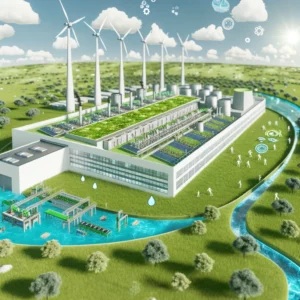- お役立ち記事
- Transition to Sustainable Manufacturing Processes

Transition to Sustainable Manufacturing Processes
In recent years, the manufacturing industry has faced increasing pressure to transition to sustainable processes. As the global focus on environmental protection and social responsibility grows, companies in this sector are realizing the need to adopt sustainable manufacturing practices to ensure long-term viability and competitiveness. In this article, we will explore the importance of transitioning to sustainable manufacturing processes and the benefits it can bring.

Why Transition to Sustainable Manufacturing Processes?
1. Environmental Impact Reduction
Traditional manufacturing processes often result in significant environmental harm, including air and water pollution, depletion of natural resources, and greenhouse gas emissions. By transitioning to sustainable manufacturing processes, companies can minimize their ecological footprint, conserve resources, and protect the environment for future generations.
2. Compliance with Regulations
Governments around the world are implementing stricter regulations and standards to address climate change and environmental degradation. Companies that fail to comply may face legal consequences, financial penalties, and damage to their reputation. Transitioning to sustainable manufacturing processes allows companies to meet these regulations proactively and avoid potential risks.
3. Cost Savings
Sustainable manufacturing processes can lead to significant cost savings in the long run. By implementing energy-efficient technologies, recycling and waste reduction programs, and optimized supply chain management, companies can reduce their operating costs, improve resource efficiency, and enhance overall profitability.
4. Enhanced Reputation and Customer Loyalty
As consumers become more environmentally conscious, they are increasingly inclined to support companies that demonstrate a commitment to sustainability. Transitioning to sustainable manufacturing processes can improve a company’s brand image, attract environmentally conscious customers, and foster customer loyalty.
5. Access to New Markets and Business Opportunities
Companies that embrace sustainable manufacturing processes can gain a competitive edge and access new markets. Many consumers and businesses prioritize sustainable products and prefer to collaborate with environmentally responsible suppliers. By showcasing their commitment to sustainability, companies can expand their customer base and unlock new business opportunities.
Strategies for Transitioning to Sustainable Manufacturing Processes:
1. Energy Efficiency
Implementing energy-efficient technologies, such as smart sensors, automation, and renewable energy sources, can significantly reduce a company’s energy consumption and carbon footprint. Conducting energy audits and optimizing production processes can help identify areas for improvement.
2. Waste Reduction and Recycling
Developing comprehensive waste management programs and promoting recycling initiatives can minimize the amount of waste generated in manufacturing processes. By reusing materials, adopting circular economy principles, and working with suppliers to reduce packaging waste, companies can contribute to a more sustainable future.
3. Supply Chain Optimization
Collaborating with suppliers who adhere to sustainability principles and implementing responsible sourcing practices can ensure the sustainability of the entire supply chain. By conducting due diligence on suppliers’ environmental and social practices, companies can mitigate risks and enhance their sustainability performance.
4. Stakeholder Engagement
Engaging with employees, customers, suppliers, and other stakeholders is crucial for a successful transition to sustainable manufacturing processes. Companies can educate and train employees on sustainable practices, involve customers in product sustainability initiatives, and collaborate with suppliers to drive sustainability improvements across the value chain.
5. Continuous Improvement and Innovation
Embracing a culture of continuous improvement and investing in research and development can lead to innovative solutions for sustainable manufacturing processes. Companies should regularly assess their sustainability performance, set ambitious goals, and explore emerging technologies and best practices to stay at the forefront of sustainable manufacturing.
In conclusion, transitioning to sustainable manufacturing processes is no longer an option but a necessity for companies in the industry. By adopting environmentally responsible practices, companies can not only mitigate environmental impact but also gain a competitive advantage, reduce costs, enhance their reputation, and access new markets. Embracing sustainability in manufacturing is a win-win situation for businesses, society, and the planet.




